Editor’s Note:
The following essay was later incorporated into Kerry Bolton’s The Psychotic Left: From Jacobin France to the Occupy Movement [2] , available from Black House Publishing [3].
, available from Black House Publishing [3].
 The ‘Right’ of the political dichotomy, including even social and moral values that have traditionally been regarded – until recently – as normative, has for approximately eighty years, been the subject of analysis not just politically and sociologically, but psychologically.
The ‘Right’ of the political dichotomy, including even social and moral values that have traditionally been regarded – until recently – as normative, has for approximately eighty years, been the subject of analysis not just politically and sociologically, but psychologically.
The impetus for a psychological analysis of the Right and even of conservative morality, as a mental aberration, was led by the Frankfurt School of Critical Theory which, with the rise of Hitler, was transferred en masse to the USA under the auspices of Columbia University, where it was re-established in New York as the Institute of Social Research.[1] The seminal document issued by this coterie, headed by Theodore Adorno, was The Authoritarian Personality,[2] a psychological study which intended to show through statistical analysis with a survey based on an ‘F’ (Fascism) Scale, that traditional values on morality, and especially the family and parental authority, were in need of psychological reorientation and were symptoms of latent ‘fascism’. In particular, the patriarchal family came under attack as the root institution for the cultivation of a ‘fascist’ mentality.[3]
While Leftist social scientists such as those of the Frankfurt School sought to show through statistical analysis that conservative values are psychologically abnormal, concurrently there was a move to show that Leftists have normative values. Rothman and Lichter in their psycho-historical study of Jews in the US New Left, state that studies by social scientists have been devised to show that Leftists possess positive, normative values. They write that in the USA and to a lesser extent Europe most ‘commentaries and “scientific” studies of the student movement agreed that the radical young represented the best in their societies’. Rothman and Lichter point out that the studies involved very small numbers and that the examiners’ sympathies were with their subjects politically. This coterie of social scientists produced a stream of studies ‘that seemed to prove, that radical students were democratic, humanitarian, psychologically healthy and morally advanced’. ‘All these critical studies are either impressionistic or based on small samples’.[4]
Many social scientists attributed many ‘positive’ personality attributes or political views to the New Left largely because their questionnaires were either constructed in such a manner as to ascribe such attributes to radical students almost by definition, or because the students… knew how to respond ‘appropriately’ to the questions posed.[5]
Hence the perception has persisted that that ‘Right’ is based on values emanating from the mentally dysfunctional, often based in the patriarchal family; and the ‘Left’ is mentally healthy. Rothman and Lichter are critical of the Frankfurt School, and the use of the so-called “‘F’ scale to uncover ‘Fascist’ tendencies as personality types. Rothman and Lichter argue that The Authoritarian Personality was a study intended to confirm the preconceived opinions of the authors.[6]
However, Rothman and Lichter’s studies of New Left students found that ‘radicals were significantly more likely than moderates to manifest tendencies toward a negative identity, masochistic surrender and treating people as concepts’. Jewish radicals typically manifested a tendency to escape from a dominating mother, while non-Jewish radicals regarded their fathers as more dominant but flawed.[7]
Although the synthesis of Freudianism and Marxism was unacceptable to the Stalinists, and the Critical Theorists were rejected by the German Communist Party,[8] the USSR found psychiatry a useful means of silencing ‘dissidents’ by subjecting them to psychiatric examination and routinely diagnosing them as schizophrenic, whereafter they would be confined to a mental asylum and concomitantly anti-Sovietism identified as a form of psychosis.[9]
The celebrated poet Ezra Pound received similar treatment on his forcible return from Italy to the USA after World War II, having first been confined to an open air cage by the American occupation forces in Italy. To avoid the publicity of a treason trial for one of the world’s most eminent literati, Pound was confined to St Elizabeths mental asylum.[10]
Use of Psychiatry against Dissidents in the Liberal West
The Right has continued to be portrayed as a mental aberration, whether in its most extreme Hitlerite forms, or merely as enduring conservative values on the family, such values being portrayed as regressive. For example, the seminal post-War ‘fascist’ philosopher Francis Parker Yockey, upon his arrest for passport violations in San Francisco in 1960, was ordered to undergo a mental examination by the Court[11] ensuring that anyone who tended towards such ideas could likewise be relegated as insane. Indeed, he committed suicide in prison during trial for the very reason that he feared being subjected to lobotomy or medication that would reduce him to a mentally vegetative state.[12] While the Leftist or liberal critic would typically respond that this in itself indicates Yockey’s mental state, the situation is not that simplistic, especially at that time.
Indeed, Dr Thomas Szasz, professor emeritus of psychiatry at the University of Syracuse New York Upstate Medical University, and an eminent critique of Freudianism, has written that ‘we are replacing social controls justified by race with social controls justified by psychiatric diagnosis’. Szasz cites the case of General Edwin Walker, a primary victim of the Kennedy era witch-hunt against ‘Right-wingers’ in the military. Walker was forced to resign due to his anti-Communist education programme among the American military forces in Germany. Apparently the Liberal-American conflict with the USSR was not supposed to extend to an examination of Communist ideology, which might come uncomfortably close to ‘Right-wing extremism’. Gen. Walker, after his forced resignation, became a prominent fighter against desegregation, communism and liberalism. Walker assisted Governor Ross Barnett in leading mass resistance against the desegregation of the University of Mississippi, enforced by the invasion of Mississippi by Federal Troops in 1962. Szasz writes:
Arrested on four federal charges, including ‘inciting, assisting, and engaging in an insurrection against the authority of the United States,’ Walker was taken before a U.S. commissioner and held pending the posting of $100,000 bond. While he was making arrangements to post bail, Attorney General Robert Kennedy ordered Walker flown, on a government aircraft, to Springfield, Missouri, to be incarcerated in the U.S. Medical Center for Prisoners for ‘psychiatric observation’ on suspicion that he was mentally unfit to stand trial.[13]
Walker’s entry in Wikipedia mentions neither this nor the ensuing confrontation between Walker’s legal team and the government’s psychiatric team. The reader is told only that Walker ‘posted bond and returned home to Dallas, where he was greeted by a crowd of 200 supporters. After a federal grand jury adjourned in January 1963 without indicting him, the charges were dropped’.[14]
Szasz is able to write on the Walker case from first-hand experience, as he was asked to advise Walker’s legal team. Of particular interest here is that Szasz writes:
I summarized the evidence for my view that psychiatry is a threat to civil liberties, especially to the liberties of individuals stigmatized as ‘right-wingers’, illustrated by the famous case of Ezra Pound, who was locked up for 13 years while the government ostensibly waited for his ‘doctors’ to restore his competence to stand trial. Now the Kennedys and their psychiatrists were in the process of doing the same thing to Walker.[15]
Had Yockey therefore been so ‘paranoid’ two years previously when he was worried that he would be diagnosed insane, locked away in a facility and subjected to cerebral destruction through the then widely used methods of lobotomy or electric shock?
Szasz told the legal team that it would be no use trying to argue for Walker’s released on the basis of truth. However, the defence expert witness, Dr. Robert L. Stubblefield, chief psychiatrist at the Southwest Medical Center in Dallas, was able to expose Dr. Manfred Guttmacher, long-time chief medical officer at Baltimore City’s Supreme Court, as ‘an evil quack’, as Szasz states it, Walker was declared mentally fit, and a Federal Grand Jury refused to indict him.
Szasz states that even Senator Barry Goldwater two years later, as Republican Presidential candidate, was a target of politicised psychiatry:
Less than two years later, my view that organized American psychiatry was becoming overtly political, seeking the existential invalidation and psychiatric destruction of individuals who do not share the psychiatric establishment’s left-liberal ‘progressive’ views, received further dramatic support. In 1964, when Senator Barry Goldwater was the Republican candidate for president, 1,189 psychiatrists publicly declared–without benefit of examination–that Goldwater was ‘psychologically unfit to be President of the United States’. Many offered a diagnosis of ‘paranoid schizophrenia’ as the basis for their judgment.[16]
The use of psychiatry to marginalize political opponents of Left-liberal dogma is obviously not a mere paranoid delusion of the Right. Hence, for example, The Nizkor Project, which specialises in smearing Rightists and ‘Holocaust deniers’, uses a psychiatric term in describing the US ‘militia movement’ as ‘paranoid’’.[17]
Yet the Left, despite its manifestation of the most extreme forms of sadism since the French Revolution of 1789-92, has largely escaped critical psychological analyses of its leaders and ideologues. The Left is now doctrinally acceptable as normative, and the adherents of its most extreme variation – communism – can maintain respectable positions in academia, and have their books published by the large publishers, while those of the Right are marginalized.
Rather, Karl Marx for example, continues to be feted among respectable quarters as a seminal and still valuable contributor to sociology. While Jim Jones is generally perceived as deranged, he is considered within the context of any other cult leader such as David Koresh, rather than as an apostle of the Left whose actions were consistent with the Left doctrinally and historically, and whose psychological profile is analogous to that of other Leftists still regarded as paragons of democratic and liberal values.
The Left and the Degenerative Personality
The Hungarian physician and sociologist Dr Max Nordau wrote on the degeneration of culture and philosophy as a symptom of mental and moral degeneration. Writing in 1895, Nordau provided a proto-psychohistorical perspective on Leftist revolutions, which was developed several decades later by the American, Dr Lothrop Stoddard, who described such upheavals as the ‘revolt against civilisation’.[18] This theory postulates that civilisational values are an unendurable burden upon the mentally subnormal, including types that are both what might popularly be called the ‘unbalanced genius’ and the common criminal. Hence, the ‘revolt against civilisation’ is rationalised as a political doctrine for the overthrow of social order, and the unleashing of pent-up depravity. The revolutionary Left is rationalised sociopathology.
Dr Nordau described several types of social marginality, which often includes the highly intelligent:
Quite a number of different designations have been found for these persons. Maudsley and Ball call them ‘Borderland dwellers’ – that is to say, dwellers on the borderland between reason and pronounced madness. Magnan gives to them the name of ‘higher degenerates’ and Lombroso[19] speaks of mattoids (from matto, the Italian for insane).[20]
These ‘mattoids’ or ‘borderland dwellers’ provide the leadership of social upheavals, while the types that might typically be found in the criminal underworld provide the mobs. Nordau states:
In the mental development of degenerates, we meet with the same irregularity that we have observed in their physical growth. The asymmetry of face and cranium finds, as it were, its counterpart in their mental faculties. Some of the latter are completely stunted, others morbidly exaggerated. That which nearly all degenerates lack is the sense of morality and of right and wrong. For them there exists no law, no decency, no modesty. In order to satisfy any momentary impulse, or inclination, or caprice, they commit crimes and trespasses with the greatest calmness and self-complacency, and do not comprehend that other persons take offence. When this phenomenon is present in a high degree, we speak of ‘moral insanity’ with Maudsley; there are, nevertheless, lower stages in which the degenerate does not, perhaps, himself commit any act which will bring him into conflict with the criminal code, but at least asserts the theoretical legitimacy of crime; seeks, with philosophically sounding fustian, to prove that ‘good’ and ‘evil,’ virtue and vice, are arbitrary distinctions; goes into raptures over evildoers and their deeds; professes to discover beauties in the lowest and most repulsive things; and tries to awaken interest in, and so-called ‘comprehension’ of, every bestiality. The two psychological roots of moral insanity, in all its degrees of development, are, firstly, unbounded egoism, and, secondly, impulsiveness: – i.e., inability to resist a sudden impulse to any deed; and these characteristics also constitute the chief intellectual stigmata of degenerates.[21]
Nordau considers how the ‘mattoid’ uses revolution as an outlet for destructive urges:
In view of Lombroso’s researches [Lombroso, La Physionomie des Anarchistes, 1891, p. 227] it can scarcely be doubted that the writings and acts of revolutionists and anarchists are also attributable to degeneracy. The degenerate is incapable of adapting himself to existing circumstances. This incapacity, indeed, is an indication of morbid variation in every species, and probably a primary cause of their sudden extinction. He therefore rebels against conditions and views of things which he necessarily feels to be painful, chiefly because they impose upon him the duty of self-control, of which he is incapable on account of his organic weakness of will. Thus he becomes an improver of the world, and devises plans for making mankind happy, which, without exception, are conspicuous just as much by their fervent philanthropy, and often pathetic sincerity, as by their absurdity and monstrous ignorance of all real relations.[22]
It is the ‘mattoids’ who provide the philosophical justification for violence done against civilized values in the name of ‘freedom’, and who continue to be upheld by today’s intelligentsia, itself often of mattoid type, as ‘great thinkers’. Nordau writes of them:
“The degenerate,’’ says Legrain, [Paul Maurice Legrain, Du délire chez les dégénérés; Paris, 1886, p. 11] may be a genius. A badly balanced mind is susceptible of the highest conceptions, while, on the other hand, one meets in the same mind with traits of meanness and pettiness all the more striking from the fact that they co-exist with the most brilliant qualities. ‘As regards their intellect, they can (says Jacques Roubinovitch, Hystérie male et dégénérescence; Paris,1890, p.33) ‘attain to a high degree of development, but from a moral point of view their existence is completely deranged … A degenerate will employ his brilliant faculties quite as well in the service of some grand object as in the satisfaction of the basest propensities (Lombroso has cited a large number of undoubted geniuses who were equally undoubted mattoids, graphomaniacs, or pronounced lunatics.)[23]
It is perhaps more than anything else that the forces of the Left, in both Socialist and Liberal-democratic forms, masquerade as the wave of the future, while any individual, doctrine or institution opposing or blocking them is disparaged as regressive. Yet, as Nordau pointed out over a century ago, these ‘moderns’, these ‘progressives’, who disparage all tradition and want to make the world anew, are the heralds of atavism, whether in the arts, ethics or politics. Nordau continues:
Retrogression, relapse – this is in general the ideal of this band who dare to speak of liberty and progress. They wish to be the future. That is one of their chief pretensions. That is one of the means by which they catch the largest number of simpletons. We have, however, seen in all individual cases that it is not the future but the most forgotten, far-away past Degenerates lisp and stammer, instead of speaking. They utter monosyllabic cries, instead of constructing grammatically and syntactically articulated sentences. They draw and paint like children, who dirty tables and walls with mischievous hands. They compose music like that of the yellow natives of East Asia. They confound all the arts, and lead them back to the primitive forms they had before evolution differentiated them. Every one of their qualities is atavistic, and we know, moreover, that atavism is one of the most constant marks of degeneracy.[24]
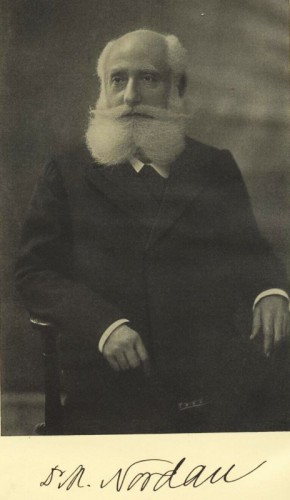 Nordau wrote of these ‘modernist’ trends in art, philosophy and politics as going against the normative values that decades later started to be described by Adorno and his team from the Frankfurt School of Critical Theory as incipient ‘fascism’:
Nordau wrote of these ‘modernist’ trends in art, philosophy and politics as going against the normative values that decades later started to be described by Adorno and his team from the Frankfurt School of Critical Theory as incipient ‘fascism’:
The ‘freedom’ and ‘modernity’, the ‘progress’ and ‘truth’, of these fellows are not ours. We have nothing in common with them. They wish for self-indulgence; we wish for work. They wish to drown consciousness in the unconscious; we wish to strengthen and enrich consciousness. They wish for evasive ideation and babble; we wish for attention, observation, and knowledge. The criterion by which true modems may be recognised and distinguished from impostors calling themselves moderns may be this: Whoever preaches absence of discipline is an enemy of progress; and whoever worships his ‘I’ is an enemy to society. Society has for its first premise, neighbourly love and capacity for self-sacrifice; and progress is the effect of an ever more rigorous subjugation of the beast in man, of an ever tenser self-restraint, an ever keener sense of duty and responsibility. The emancipation for which we are striving is of the judgement, not of the appetites.[25]
If one notes what Nordau was describing as normative civilisational values in 1895, he would certainly have been diagnosed as mentally imbalanced and an incipient ‘fascist’, possibly even an ‘anti-Semitism’ – if we disregard his Jewish background and role in later life in the Zionist movement – by Adorno and the other authors of The Authoritarian Personality.
Jacobinism and Bolshevism: The Revolt of the Under-Man
Lothrop Stoddard, whose works became very widely read in the early 20th century, writing in the aftermath of the Bolshevik upheaval that had reduced Russia to a hell, took up the theme of mental and physical degeneration as causes of revolt against civilisational values by what he termed the ‘under-man’. Giving an account of the personality types of the Bolsheviks and their methods of sadism, Stoddard wrote:
It would be extremely instructive if the Bolshevik leaders could be psycho-analyzed. Certainly, many of their acts suggest peculiar mental states. The atrocities perpetrated by some of the Bolshevik Commissars, for example, are so revolting that they seem explicable only by mental aberrations like homicidal mania or the sexual perversion known as sadism.
One such scientific examination of a group of Bolshevik leaders has been made. At the time of the Red terror in the city of Kiev, in the summer of 1919, the medical professors of Kiev University were spared on account of their usefulness to their terrorist masters. Three of these men were competent alienists, who were able to diagnose the Bolshevik leaders mentally in the course of their professional duties. Now their diagnosis was that nearly all the Bolshevik leaders were degenerates, of more or less unsound mind. Furthermore, most of them were alcoholics, a majority were syphilitic, while many were drug fiends…[26]
Stoddard gives a dramatic illustration of the roles being played out in such revolts, when an internationally acclaimed philology scholar, Professor Timofie Florinsky of Kiev University, was brought before the Revolutionary Tribunal, and spontaneously shot by one of the ‘judges’ for giving an ‘irritating reply’ to a question. The murderous Commissar, Rosa Schwartz, a former prostitute, was drunk.[27]
The Kiev event is pregnant with historical and cultural meaning. The clash of two worlds, fundamentally alien to each other but coinciding in time and space: the commissar, a drunken ex-whore, puts to death in an instant of primal savagery the scholar. Such scenes had been played out en masse by the mobs during the French Revolution, continuously plied with alcohol and drugs, pushed onward by prostitutes, pirates and criminals, and agitated by mattoids from among depraved elements of the upper and middle classes.
While it now seems to be regarded as passé to refer to what was once widely called the Red Terror in Bolshevik Russia, attention being drawn almost entirely to the ‘crimes of the Nazis’, any reference to major atrocities other than that involving Jews being regarded as ‘relativising the Holocaust’,[28] the implementation of the Bolshevik policy on terror shows symptoms of mass sadism in a literal, psychotic sense. One must go to the accounts of the time, however, in order to realise the character of the sadism.
After Denikin’s White Army defeated the Bolsheviks at Odessa in August 1919, Rev. R Courtier-Forster, Chaplain of the British forces at Odessa and the Black Sea ports, who had been held captive by the Bolsheviks, reported the horrors of Bolshevism, relating how on the ship “Sinope”, the largest cruiser of the Black Sea Fleet, some of his personal friends had been chained to planks and slowly pushed into the ship’s furnaces to be roasted alive. Others were scalded with steam from the ship’s boilers. Mass rapes were committed, while the local Soviet press debated the possibilities of nationalizing women. The screams from women being raped, and from other victims in what Rev. Courtier-Forster called the ‘Bolshevik’s House of Torture’ at Catherine Square, could be heard for blocks around, while at Catherine Square the Bolsheviks tried to muffle the screams with the noise of lorries thundering up and down the street.[29]
When the Rohrberg Commission of Enquiry entered Kiev, after the Soviets had been driven out in August 1919, it described the ‘execution hall’ of the Bolsehvik secret police, the Cheka, as follows:
All the cement floor of the great garage (the execution hall of the departmental Cheka of Kiev) was flooded with blood. This blood was no longer flowing, it formed a layer of several inches: it was a horrible mixture of blood, brains, of pieces of skull, of tufts of hair and other human remains. All the walls were bespattered with blood; pieces of brains and scalps were sticking to them. A gutter twenty-five centimetres wide by twenty-five centimetres deep and about ten metres long ran from the centre of the garage towards a subterranean drain. This gutter along its whole length was full to the top with blood…Usually as soon as the massacre had taken place the bodies were conveyed out of the town in motor lorries and buried beside the grave about which we have spoken; we found in a corner of the garden another grave which was older and contained about eighty bodies. Here we discovered on the bodies traces of cruelties and mutilations the most varied and unimaginable. Some bodies were disembowelled, others had limbs chopped off, some were literally hacked to pieces. Some had their eyes put out and the head, face, neck and trunk covered with deep wounds. Further on we found a corpse with a wedge driven into the chest. Some had no tongues. In a corner of the grave we discovered a certain quantity of arms and legs….[30]
Such atavistic savagery goes even beyond mass murder. It is the psychosis of a Jeffrey Dahmer,[31] or Edward Gein,[32] rationalised as a political ideology with noble ideals, that continues to have adherents with respectable positions in academia.
The precursor of the Bolshevik Revolution, that of France during the period 1789-1792 unleashed a mass psychosis of revolt of the dregs of France, led by the mattoid elements. As in today’s Western liberal-democracies, the theory is that manifestations of inequality and differences can be eliminated by changing the social structure according to dogma. The doctrine of the French Revolution was a ‘return to Nature’, an idolised and imaginative interpretation of what Nature was supposed to be like, concocted in the drawing rooms of the European intelligentsia, by writers such as Voltaire, Rousseau, and Weishaupt, the founder of the proto-communist Illuminati. According to these ideologues, the cause of tyranny, injustice, violence and inequality, was civilisation. If civilisation itself could be overthrown and humanity returned to a supposed innocent state of nature, then all could live in an idyllic state of happiness, peace and brotherhood. This requires the abolition of civilisational institutions such as marriage, private property, Church, state, monarchy. Karl Marx formalized precisely the same doctrine about half a century later. This atavism is ironically heralded as ‘progressive’.
The French sociologist Gustave Le Bon noted in 1895:
The idea that institutions can remedy the defects of societies, that national progress is the consequence of the improvement of institutions and governments, and that social changes can be effected by decrees – this idea, I say, is still generally accepted. It was the starting point of the French Revolution, and the social theories of the present day are based upon it.[33]
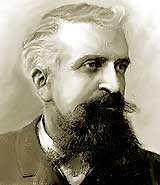 Le Bon later wrote, in the aftermath of the Bolshevik Revolution, of the same atavism that had afflicted France now unfolding in Russia:
Le Bon later wrote, in the aftermath of the Bolshevik Revolution, of the same atavism that had afflicted France now unfolding in Russia:
The Bolshevik mentality is as old as history. Cain, in the Old Testament, had the mind of a Bolshevik. But it is only in our days that this ancient mentality has met with a political doctrine to justify it. This is the reason of its rapid propagation, which has been undermining the old social scaffolding.[34]
The reader is referred to Nesta H Webster’s history, The French Revolution,[xxxv] which draws on contemporary documents from both Jacobins and Royalists, which dramatically brings to life the depravity and cowardice of the dregs of France, led by disaffected mattoid lawyers and Orleanist aristocrats, and of the heroism of those loyal to the King, including those among the common folk. What is notable in this context is the manner by which the mob could be agitated with the continuous supply of alcohol and narcotics that seemed to maintain a blood frenzy, paid for by the wealth of the Duc d’Orléans, a craven megalomaniac who desired to usurp the Throne on the backs of the criminal underworld that he had unleashed.
Here in the French Revolution is a dress rehearsal for the blood-letting by the Bolsheviks, 130 years later. At the Convent des Carmes, Rue de Vaugirard, up to 200 priests had been incarcerated. Here a drunken mob converged and with pistols and sabres killed the defenceless priests.[26] The Archbishop of Arles had his face cleaved almost in two, as he offered his life in the hope of appeasing the bloodlust and sparing the other priests. The old man’s death only excited the mob further, and they fired upon the priests kneeling in prayer in the chapel.[37] Other such massacres were conducted on priests imprisoned at the Abbaye in Paris. However, there were more victims among ‘the people’ than among the aristocrats and clergy. The revolutionary leaders sought to ‘amputate’ France, and to radically reduce its population, reminiscent of Pol Pot.
In La Vendée region a policy of wholesale extermination was undertaken to eliminate a folk who remained steadfast to King and Church.
Webster notes a curious transformation of France during the era, which shows that the Revolution was a victory of the ‘under-man’ and a return to the atavistic on the ruins of civilisation. She writes that mediocre lawyers such as Robespierre, who now held the power, vented their frustration at years of personal failure by trying to eliminate the talented and intelligent. All those who had devoted themselves to scholarship were targeted. ‘The war on education was even carried out against the treasures of science, art and literature’. One revolutionary luminary proposed killing the collection of rare animals at the Museum of Natural History. A widespread notion of the revolutionaries was to burn all the libraries and retain only books pertaining to the Revolution and to law. Thousands of books and valuable paintings were disposed of or destroyed. ‘Not only education but politeness in all forms was to be destroyed’. It became necessary to assume a ‘rough and boorish manner’ and to present ‘an uncultivated appearance’. ‘A refined countenance, hands that bore no marks of manual labour, well-brushed hair, clean and decent garments, were regarded with suspicion – to make sure of keeping one’s head it was advisable that it should be unkempt’. It was advisable to ruffle one’s hair, grow the thickness of whiskers, soil the hands…’ ‘In a word, it was not only a war on nobility, on wealth, on industry, on art, on intellect; it was a war on civilisation’.[38]
It might be observed today that the cult of the dirty and the unkempt has become a normative aspect of society.
Notes
1. K R Bolton, Revolution from Above (London: Arktos Media Ltd., 2011), p. 101.
2. T W Adorno, et al The Authoritarian Personality (New York: Harper and Row, 1950).
3. K R Bolton, ‘”Sex Pol” Ideology: The Influence of the Freudian-Marxian Synthesis on Politics and Society’, Journal of Social, Political and Economic Studies, Washington, Vol. 35, No. 3, Fall 2010, pp 329-38.
4. S Rothman and S R Lichter, Roots of Radicalism: Jews, Christians and the New Left (New York: Oxford University Press, 1982), pp. 50-52.
8. Myran Sharaf, Fury on Earth – A Biography of Wilhelm Reich (London: Andre Deutsch, 1983), p. 169; K R Bolton, ‘Sex Pol Ideology’, op. cit., pp. 347-348.
10. E Fuller Torrey, The Roots of Treason: Ezra Pound and the Secrets of St Elizabeth’s (London: Sidgwick and Jackson, 1984).
11. ‘Jailbreak plot’ told in passport case’, San Francisco Chronicle, 15 January 1960, p. 5.
12. Michael O’Meara, ‘Introduction’, Francis Parker Yockey (1949), The Proclamation of London of the European Liberation Front (Shamley Green, England: Wermod & Wermod Publishing Group, 2012), xvi. http://shop.wermodandwermod.com/the-proclamation-of-london-of-the-european-liberation-front.html
13. Yockey was to be subjected to precisely the same procedure.
14. Thomas Szasz, ‘The Shame of Medicine: The Case of General Edwin Walker’, The Freeman, Vol. 59, no. 8, October 2009, http://www.thefreemanonline.org/columns/the-therapeutic-state/the-shame-of-medicine-the-case-of-general-edwin-walker/
17.‘Paranoia as Patriotism: Far Right Influences on the Militia movement’, The Nizkor Project, http://www.nizkor.org/hweb/orgs/american/adl/paranoia-as-patriotism/minutemen.html
18. Lothrop Stoddard (1922), The Revolt Against Civilization: The Menace of the Under-Man (Wermod & Wermod, 2012).
19. Cesare Lombroso is widely regarded as the founder of criminology.
20. Max Nordau, Degeneration (New York: D Appleton & Co., 1895), p. 18.
26. Lothrop Stoddard, op. cit., Chapter VI: ‘Rebellion of the Under-Man’, p. 177,
28. Deborah E Lipstadt, Denying the Holocaust: The Growing Assault on Truth and Memory (London: Penguin Books, 1994). See especially Chapter 11: ‘Watching on the Rhine: The Future Course of Holocaust Denial’, pp. 209-222.
29. R. Courtier-Forster, ‘Bolshevism, Reign of Torture at Odessa’, London Times, 3 December, 1919, pp. 2, 3, 4.
30. S Melgunoff, La terreur rouge (Paris, 1927), cited by Vicomte Leon de Poncins, The Secret Powers Behind Revolution (California: Christian Book Club of America, n.d.), p. 149.
31. Jeffrey Dahmer killed 17 young men during 1978-1991, refrigerated and cannibalised their body parts.
32. Edward Gein was a cannibal, necrophile, and grave robber, who used bodies parts to construct leggings, furniture covering and so forth.
33. Gustave Le Bon, The Crowd, op.cit., p. 86.
34. Gustave Le Bon, The World in Revolt (New York, 1921) p. 179; cited by Stoddard, op. cit., Chapter VII: ‘The War Against Chaos’.
35. Nesta H Webster, The French Revolution, 1919, 1969. Wermod & Wermod, Britain, will be issuing a de luxe edition of The French Revolution in 1912, with an introduction by this author. The pages cited in this article are from the 1969 edition.
38. Ibid., pp. 412-413.
Source: Ab Aeterno, no. 10, January-March 2010.
 Perché è necessario ribadire che l’idea socialista è necessariamente legata al concetto di disciplina? A più di quarant’anni dal tristemente famoso ’68, il ribellismo anarco-libertario ha pesantemente influenzato la “forma mentis” del militante di sinistra, e ha condizionato l’azione dei gruppi-movimenti determinati a realizzare il socialismo. La disciplina, intesa come serie di regole, norme ferree ed esercizi, necessari per il corretto funzionamento di qualunque forma di organizzazione politica (partiti) e statale, è fondamento di ogni costruzione sociale. Senza di essa, non è possibile generare e mantenere in vita nulla. In Europa Occidentale il rifiuto e la condanna del modo di produzione capitalistico sono costantemente associati al disprezzo per lo Stato, per la nazione, per la Polizia e per l’Esercito. In realtà non esiste alcuna alternativa politica seria che non prenda in considerazione l’idea di poter generare una nuova formazione statale e potenziare gli organismi di Difesa e tutela dell’ordine pubblico. Idee distorte sono il riflesso di comportamenti individuali altrettanto nocivi e antisociali, tipici della sovrastruttura culturale liberalista dell’ultima borghesia, non dei socialisti. Il passaggio che ha portato molti militanti dal Partito Comunista più forte e numeroso del campo occidentale ai “centri sociali occupati” o a repliche sempre più scadenti di “Democrazia Proletaria”(1), non può essere compreso senza riflettere sull’incapacità cronica del militante o simpatizzante di “sinistra”, di concepire il socialismo come società ordinata e rigidamente organizzata, dove non esistono consumo di sostanze stupefacenti o psicotrope, “l’obiezione di coscienza” o parate dell’orgoglio omosessuale.
Perché è necessario ribadire che l’idea socialista è necessariamente legata al concetto di disciplina? A più di quarant’anni dal tristemente famoso ’68, il ribellismo anarco-libertario ha pesantemente influenzato la “forma mentis” del militante di sinistra, e ha condizionato l’azione dei gruppi-movimenti determinati a realizzare il socialismo. La disciplina, intesa come serie di regole, norme ferree ed esercizi, necessari per il corretto funzionamento di qualunque forma di organizzazione politica (partiti) e statale, è fondamento di ogni costruzione sociale. Senza di essa, non è possibile generare e mantenere in vita nulla. In Europa Occidentale il rifiuto e la condanna del modo di produzione capitalistico sono costantemente associati al disprezzo per lo Stato, per la nazione, per la Polizia e per l’Esercito. In realtà non esiste alcuna alternativa politica seria che non prenda in considerazione l’idea di poter generare una nuova formazione statale e potenziare gli organismi di Difesa e tutela dell’ordine pubblico. Idee distorte sono il riflesso di comportamenti individuali altrettanto nocivi e antisociali, tipici della sovrastruttura culturale liberalista dell’ultima borghesia, non dei socialisti. Il passaggio che ha portato molti militanti dal Partito Comunista più forte e numeroso del campo occidentale ai “centri sociali occupati” o a repliche sempre più scadenti di “Democrazia Proletaria”(1), non può essere compreso senza riflettere sull’incapacità cronica del militante o simpatizzante di “sinistra”, di concepire il socialismo come società ordinata e rigidamente organizzata, dove non esistono consumo di sostanze stupefacenti o psicotrope, “l’obiezione di coscienza” o parate dell’orgoglio omosessuale.




 del.icio.us
del.icio.us
 Digg
Digg The ‘Right’ of the political dichotomy, including even social and moral values that have traditionally been regarded – until recently – as normative, has for approximately eighty years, been the subject of analysis not just politically and sociologically, but psychologically.
The ‘Right’ of the political dichotomy, including even social and moral values that have traditionally been regarded – until recently – as normative, has for approximately eighty years, been the subject of analysis not just politically and sociologically, but psychologically.  Nordau wrote of these ‘modernist’ trends in art, philosophy and politics as going against the normative values that decades later started to be described by Adorno and his team from the Frankfurt School of Critical Theory as incipient ‘fascism’:
Nordau wrote of these ‘modernist’ trends in art, philosophy and politics as going against the normative values that decades later started to be described by Adorno and his team from the Frankfurt School of Critical Theory as incipient ‘fascism’: Le Bon later wrote, in the aftermath of the Bolshevik Revolution, of the same atavism that had afflicted France now unfolding in Russia:
Le Bon later wrote, in the aftermath of the Bolshevik Revolution, of the same atavism that had afflicted France now unfolding in Russia:
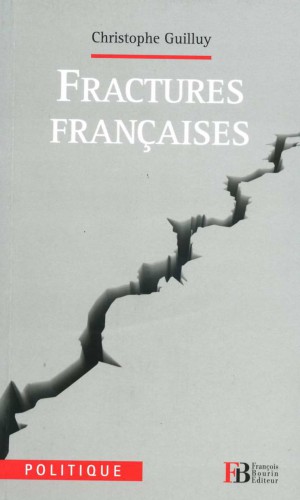
 Comment régénérer le socialisme français à un an des municipales ? Hollande a trouvé : par l’ethno-socialisme. Juste après le vote du "mariage pour tous" à l’Assemblée nationale, François Hollande s’est empressé de visiter Les Mureaux pour reconquérir des voix. Il copie ainsi le modèle Obama qui avait pas mal réussi. On verra ainsi, ces prochains mois, les ténors socialistes circuler en banlieue et ressortir le projet de vote des immigrés aux municipales. Faire voter les deuxième et troisième générations, c’était déjà l’objectif premier du think tank socialiste Terra Nova.
Comment régénérer le socialisme français à un an des municipales ? Hollande a trouvé : par l’ethno-socialisme. Juste après le vote du "mariage pour tous" à l’Assemblée nationale, François Hollande s’est empressé de visiter Les Mureaux pour reconquérir des voix. Il copie ainsi le modèle Obama qui avait pas mal réussi. On verra ainsi, ces prochains mois, les ténors socialistes circuler en banlieue et ressortir le projet de vote des immigrés aux municipales. Faire voter les deuxième et troisième générations, c’était déjà l’objectif premier du think tank socialiste Terra Nova. Het jaar van het gevaarlijke dromen bestaat grofweg uit twee delen. Eerst maakt Zizek een aantal opmerkingen over de dynamiek van het kapitalisme, waardoor deze ideologie er steeds weer in slaagt zich aan de veranderende omstandigheden aan te passen zonder evenwel haar principes van uitbuiting en onrechtvaardigheid op te geven.
Het jaar van het gevaarlijke dromen bestaat grofweg uit twee delen. Eerst maakt Zizek een aantal opmerkingen over de dynamiek van het kapitalisme, waardoor deze ideologie er steeds weer in slaagt zich aan de veranderende omstandigheden aan te passen zonder evenwel haar principes van uitbuiting en onrechtvaardigheid op te geven.


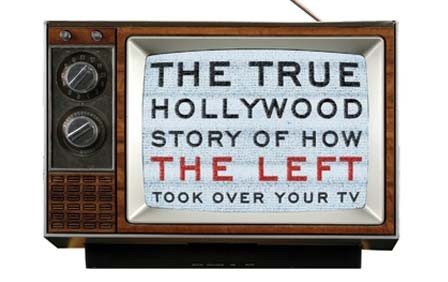
 « On pourrait ainsi, dans l’absolu, imaginer une société libérale dont l’économie serait entièrement tournée vers l’exportation et dont la consommation intérieure serait donc réduite au minimum (sauf, bien sûr, pour la bourgeoisie exportatrice et les catégories sociales qui lui seraient liées). Une coexistence relativement pacifique entre cette forme d’économie de marché et un pouvoir fondamentalement autoritaire (voire « conservateur ») serait alors théoriquement possible (notons que c’est d’ailleurs encore partiellement le cas en Chine « communiste », puisque la consommation privée n’y représente que 37% du PIB contre -par exemple- 71% aux Etats-Unis). En revanche, sitôt que la consommation intérieure ostentatoire (c’est-à-dire le développement d’un mode de vie capitaliste fondé sur la mode, le spectacle et la movida) commence à dépasser un certain pourcentage du PIB, il est inévitable -à plus ou moins long terme- que les « mœurs » évoluent dans un sens individualiste, narcissique et libéral (autrement dit, « de gauche », au sens contemporain du terme) et que le contrôle strictement totalitaire de la population devienne progressivement problématique, voire définitivement impossible. C’est alors que, dans l’intérêt même de l’élite au pouvoir, le vieux système du parti unique doit peu à peu céder sa place à une forme ou une autre de « régime représentatif », adoubé par la « communauté internationale » et désormais fondé -comme tous ses semblables- sur le principe de l’alternance unique (autrement dit, du « combat » savamment mis en scène par les médias officiels -sur le modèle « TF1 contre Canal Plus »- entre une gauche « citoyenne » et moderniste, chargée de reprendre systématiquement à son compte toutes les transformations morales et culturelles engendrées par la dynamique capitaliste, et une droite libérale qui doit, à l’inverse, feindre en permanence d’être conservatrice et de défendre les valeurs éthiques anticapitalistes auxquelles les classes populaires sont encore massivement attachées). Cette division du travail entre les deux faces opposées du ruban de Möbius libéral s’est toujours avérée incomparablement plus efficace que le vieux système du parti unique (et l’on comprend que la gauche et la droite libérales aient désormais un intérêt commun à présenter leur « antagonisme » électoral comme indépassable).
« On pourrait ainsi, dans l’absolu, imaginer une société libérale dont l’économie serait entièrement tournée vers l’exportation et dont la consommation intérieure serait donc réduite au minimum (sauf, bien sûr, pour la bourgeoisie exportatrice et les catégories sociales qui lui seraient liées). Une coexistence relativement pacifique entre cette forme d’économie de marché et un pouvoir fondamentalement autoritaire (voire « conservateur ») serait alors théoriquement possible (notons que c’est d’ailleurs encore partiellement le cas en Chine « communiste », puisque la consommation privée n’y représente que 37% du PIB contre -par exemple- 71% aux Etats-Unis). En revanche, sitôt que la consommation intérieure ostentatoire (c’est-à-dire le développement d’un mode de vie capitaliste fondé sur la mode, le spectacle et la movida) commence à dépasser un certain pourcentage du PIB, il est inévitable -à plus ou moins long terme- que les « mœurs » évoluent dans un sens individualiste, narcissique et libéral (autrement dit, « de gauche », au sens contemporain du terme) et que le contrôle strictement totalitaire de la population devienne progressivement problématique, voire définitivement impossible. C’est alors que, dans l’intérêt même de l’élite au pouvoir, le vieux système du parti unique doit peu à peu céder sa place à une forme ou une autre de « régime représentatif », adoubé par la « communauté internationale » et désormais fondé -comme tous ses semblables- sur le principe de l’alternance unique (autrement dit, du « combat » savamment mis en scène par les médias officiels -sur le modèle « TF1 contre Canal Plus »- entre une gauche « citoyenne » et moderniste, chargée de reprendre systématiquement à son compte toutes les transformations morales et culturelles engendrées par la dynamique capitaliste, et une droite libérale qui doit, à l’inverse, feindre en permanence d’être conservatrice et de défendre les valeurs éthiques anticapitalistes auxquelles les classes populaires sont encore massivement attachées). Cette division du travail entre les deux faces opposées du ruban de Möbius libéral s’est toujours avérée incomparablement plus efficace que le vieux système du parti unique (et l’on comprend que la gauche et la droite libérales aient désormais un intérêt commun à présenter leur « antagonisme » électoral comme indépassable).


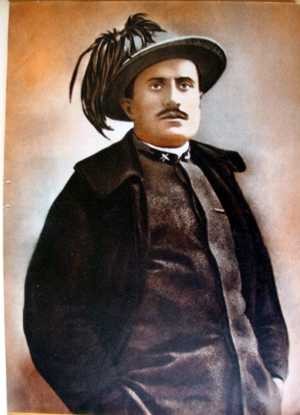 The conventional left/right model of the political spectrum holds Fascism and Marxism to be polar opposites of one another. Marxism is regarded as an ideology of the extreme Left while Fascism supposedly represents an outlook that is about as far to the Right as one can go. A title recently translated into English by Portugal’s
The conventional left/right model of the political spectrum holds Fascism and Marxism to be polar opposites of one another. Marxism is regarded as an ideology of the extreme Left while Fascism supposedly represents an outlook that is about as far to the Right as one can go. A title recently translated into English by Portugal’s 



 A: United States even today have the right to intervene in the internal affairs of every European Union member state, and especially in Germany. It is not necessary to use military force for this. How was that achieved? After 1945, German elite went through the process of re-education. US was also exerting influence over the policies of German syndicates and political parties.
A: United States even today have the right to intervene in the internal affairs of every European Union member state, and especially in Germany. It is not necessary to use military force for this. How was that achieved? After 1945, German elite went through the process of re-education. US was also exerting influence over the policies of German syndicates and political parties. A: I was shocked when I saw how quickly people can discard their ideals, literally overnight, and step in the roles of “important politicians”. I’m horrified by the barefaced hatred of these people towards their own German nation. Tossed in the garbage bin are the great achievements of the German workers’ movement, German conservatism and liberalism. I, on the other hand, believe the European culture can only exist as the sum of different, national cultures, and not some amorphous mass drowned in the common cauldron as a unified “Coca-Cola culture”.
A: I was shocked when I saw how quickly people can discard their ideals, literally overnight, and step in the roles of “important politicians”. I’m horrified by the barefaced hatred of these people towards their own German nation. Tossed in the garbage bin are the great achievements of the German workers’ movement, German conservatism and liberalism. I, on the other hand, believe the European culture can only exist as the sum of different, national cultures, and not some amorphous mass drowned in the common cauldron as a unified “Coca-Cola culture”.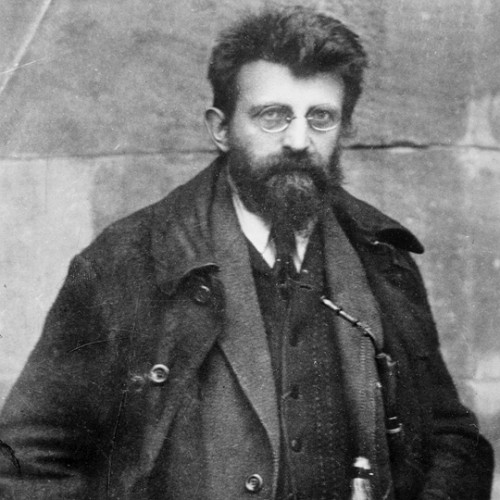
 Ce trublion que l’on classe à la gauche de la gauche, alternant entre des alliances de circonstance avec le PC « F » de Pierre Laurent ou l’ex LCR devenue NPA d’Olivier Besancenot, sans oublier ses rapprochements tactiques avec une certaine frange écolo représentée, notamment, par José Bové (cf. la campagne pour le « non » à la constitution européenne de 2005), serait-il un authentique fasciste, au sens propre du terme… du moins dans sa dimension économique ?
Ce trublion que l’on classe à la gauche de la gauche, alternant entre des alliances de circonstance avec le PC « F » de Pierre Laurent ou l’ex LCR devenue NPA d’Olivier Besancenot, sans oublier ses rapprochements tactiques avec une certaine frange écolo représentée, notamment, par José Bové (cf. la campagne pour le « non » à la constitution européenne de 2005), serait-il un authentique fasciste, au sens propre du terme… du moins dans sa dimension économique ? « Qu’ils s’en aillent tous ! »
« Qu’ils s’en aillent tous ! » Chiunque abbia a cuore il superamento del presente sistema liberaldemocratico, imperniato sul tradimento dei popoli a vantaggio del potere finanziario mondiale, e chiunque voglia agire nel nome di valori di socialità condivisa, di solidarismo anti-utilitario e di eredità bio-storica, non può seriamente prendere in considerazione l’opzione costituita dalle varie Destre oggi all’opera. Esse sono, senza eccezioni, colonne portanti del liberismo e dello sgretolamento identitario.
Chiunque abbia a cuore il superamento del presente sistema liberaldemocratico, imperniato sul tradimento dei popoli a vantaggio del potere finanziario mondiale, e chiunque voglia agire nel nome di valori di socialità condivisa, di solidarismo anti-utilitario e di eredità bio-storica, non può seriamente prendere in considerazione l’opzione costituita dalle varie Destre oggi all’opera. Esse sono, senza eccezioni, colonne portanti del liberismo e dello sgretolamento identitario.